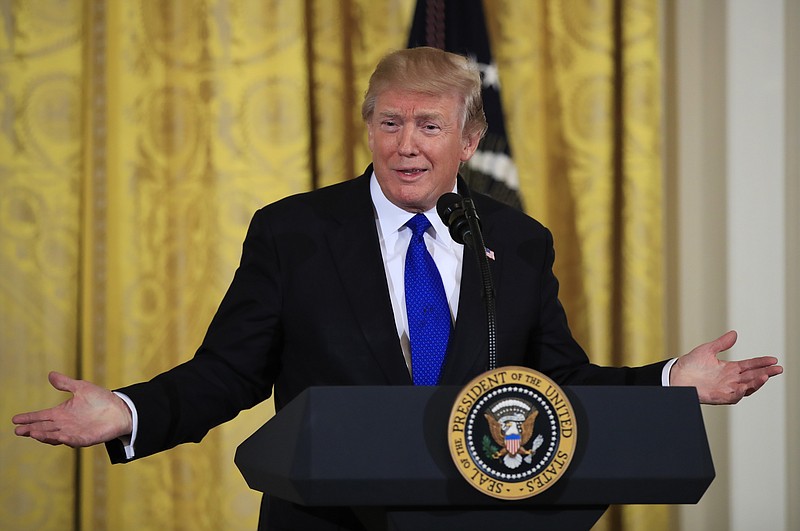As a candidate, Donald Trump talked incessantly about international trade and how he was going to make America great again by renegotiating trade agreements, forcing foreigners to stop taking away our jobs. But during his first year in office, he did almost nothing on that front - possibly because corporate America managed to inform him that it has invested a lot of money based on the assumption that we would continue to honor NAFTA and other trade agreements, and would lose bigly if he broke them.
Last week, however, Trump finally did impose tariffs on washing machines and solar panels. The former tariff was, I think, more about looking tough than about any kind of strategic objective. The latter, however, fits in with an important part of this administration's general vision. For this is very much an administration of dirty old men.
The solar panel tariff is disturbing because it will surely destroy many more jobs than it will create.
The fact is that the U.S. is largely out of the solar panel-producing business, and whatever the reasons for that absence, this policy won't change it. The solar panel tariff was imposed using what's known in trade policy circles as the "escape clause" - rules that allow temporary protection of industries suffering sudden disruption. The operative word here is "temporary"; since we're not talking about sustained protection, this tariff won't induce any long-term investments and therefore won't bring the U.S. solar panel industry back.
What it will do, however, is put a crimp in one of the U.S. economy's big success stories, the rapid growth of renewable energy. And here's the thing: Everything we know about the Trump administration suggests that hurting renewables is actually a good thing from its point of view. As I said, this is an administration of dirty old men.
Some people still think of alternative energy sources as hippy-dippy stuff that can't survive without big government subsidies, but the reality is that they've become cost-competitive with conventional energy, and their cost is still falling fast. And they also employ a lot of people: Overall, there are around five times as many people working, in one way or another, for the solar energy sector as there are coal miners.
But solar gets no love from Trump officials, who desperately want the country to stay with dirty old power sources, especially coal. They've even rewritten Energy Department reports in an attempt to make renewable energy look bad.
They've tried to turn their preference for dirty energy into concrete policy, too. Last fall, Rick Perry, the energy secretary, tried to impose a rule that would in effect have forced electricity grids to subsidize coal and nuclear plants. The rule was shot down, but it showed what these guys want. From their point of view, destroying solar jobs is probably a good thing.
Why do Trump and company love dirty energy? Partly it's about the money: what's good for the Koch brothers may not be good for America (or the world), but it's good for Republican campaign finance. Partly it's about blue-collar voters, who still imagine that Trump can bring back coal jobs.
It's also partly about cultural nostalgia: Trump and others recall the heyday of fossil fuels as a golden age, forgetting how ghastly air and water pollution used to be. But I suspect that it's also about a kind of machismo, a sense that real men don't soak up solar energy; they burn stuff instead.
Whatever the specific motivations, the administration's first significant trade policy move is stunningly boneheaded. You shouldn't even call it protectionism, since its direct effect will be to destroy far more jobs than it creates. Plus it's bad for the environment. So much winning!
The New York Times
